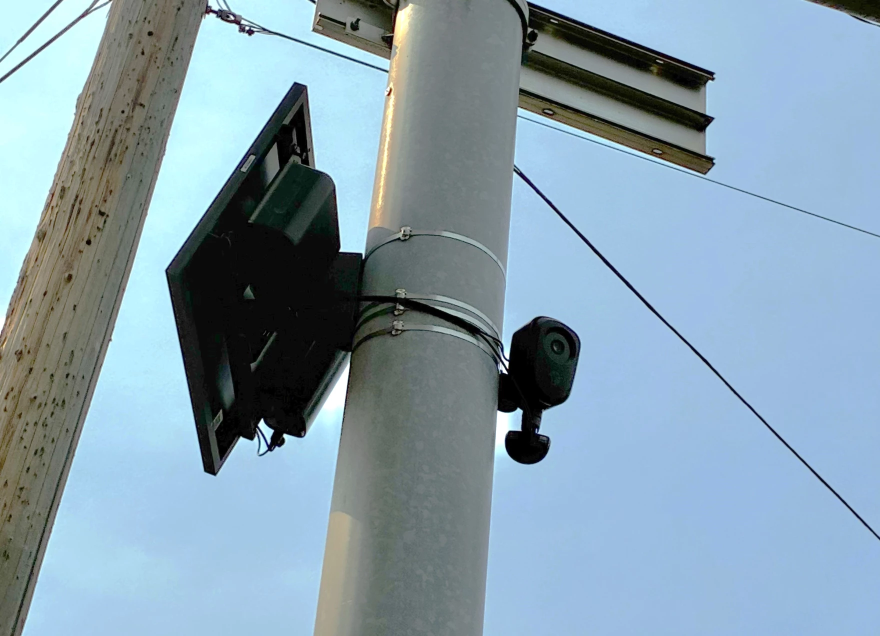The Eugene City Council voted Wednesday to ask their city manager to immediately turn off their automatic license plate readers, also known as Flock cameras.
Eugene has 57 AI license plate reader cameras, owned by Georgia-based company Flock Safety.
Several city council members, including Eliza Kashinsky, said they trusted local police to use the technology responsibly, but were concerned the data could be used against LGBTQ, or immigrant community members. She pointed to aggressive tactics the Trump Administration had used against immigrants, including an Oregon firefighter who was arrested while fighting a fire in Washington.
“I think if we were having this conversation about the risks and benefits this time last year, it would have been a different conversation,” Kashinsky said.
Councilmember Alan Zelenka said he became particularly concerned about data being abused after the Trump administration’s attempts to send National Guard troops to Portland.
“I simply don’t trust Flock, and I don’t trust the Trump administration, given where we are today,” Zelenka said. “Continuing with this program just isn’t worth the benefits we’re seeing.”
Eugene Police have been using the technology for months and say it’s helped them resolve more than 60 cases.
Police Chief Chris Skinner said after hearing community concerns, he updated transparency policies and added more restrictions in the city’s contract with Flock, such as barring the company from complying with Homeland Security administrative warrants.
He said EPD, as well as Oregon Sen. Ron Wyden, have also worked with the company to ensure it was following Oregon’s Sanctuary Law, which bars Oregon law enforcement from cooperating with immigration enforcement.
Before the council formally voted on the cameras, Skinner said it had helped officers solve more crimes.
“The one voice we haven’t heard is the voice of the victims that are being served by this technology,” Skinner said. “These are victims that have had their really tough, and emotional moment in time, their bad day, that ALPR has been able to resolve for them.”
While the entire council agreed they wanted the cameras turned off for now, there was less agreement on potential next steps. Some councilors, including Matt Keating, asked for information about how the city could get out of its contract with Flock. Several councilors wanted more time to discuss the cameras and how to safely use them.
Councilor Greg Evans said he was concerned about police historically, including in Eugene, targeting Black men with surveillance. He said new surveillance technology needs to come with broader conversations and policies about civil rights and privacy.
“It goes back to the issues of inappropriate–and what I would consider possibly illegal–surveillance activities on the part of police forces,” Evans said.
He said any future Flock discussion should also come with a discussion about safe storage, and assurances that Eugene’s data won’t end up being used for commercial purposes.
While Flock Safety owns the cameras, the company has said the governments and businesses it contracts with own the data they collect. Flock has also said it doesn’t use facial recognition.
Eugene City Council did not come to a consensus on whether it should continue, or end its contract with Flock, but did ask City Manager Sarah Medary to continue conversations with them about the technology.
If the city ends the contract – it's possible they may have to return hundreds of thousands of dollars of grant funds to the state.
Springfield Police have also installed Flock Cameras, but said they wouldn’t turn them on until a community conversation takes place.
According to the Eugene city charter, the city manager is in charge of contracts and day to day operations and the city council can only make recommendations and requests. KLCC asked the city manager’s office if Medary would follow the city council’s request, and if so, when she would turn the cameras off.
Medary’s office sent the following statement in response: “The City Manager is evaluating the Council’s recommendation and will make a decision once she’s had a chance to review the operational, contractual, and public safety implications of their recommendation.”





